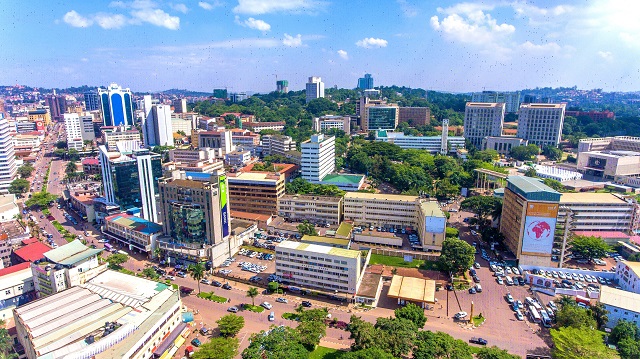
Nairobi, Kenya | Xinhua | Sunbaked mass of land littered with dry tree stumps stretch as far as the eyes can see, showing despondence.
It is apparent that there is no sign of life on the land whose surface is extremely dry and cracked due to harsh drought conditions.
Away from the land, an emaciated flamingo stands at a spot that once hosted a lake pondering its next move.
The lake is dry and what remains as a reminder of its existence is a sunken spot.
These are artists’ impressions of the worst that is currently happening in Africa as climate change unfolds and what may come in the future if mitigation measures are not mitigated.
But the artists did not only paint a picture of the negatives.
In a sketch, another artist showed a woman cooking using an improved cookstove as one of the climate adaptation measures.
The drawings were displayed on Friday at a two-day exhibition on climate change dubbed Climate Story Lab Africa in Nairobi.
The forum brought together artists, poets, storytellers and campaigners from the grassroots to international levels from across Africa.
“We are destroying the earth yet people are looking the other way. No earth, no life,” said a Tanzanian poet.
Africa, just as other parts of the world, is facing extreme climatic conditions that are threatening the existence of life.
And as the effects of climate change unfold, the continent is battling dry spells, heavy rains, colder conditions and locust invasion, all that are coming in quick succession.
It is these changes that prompted the climate activists to hold the forum and discuss the threat that climate change is, the challenges experienced, how they can be tackled and efforts being done at the grassroots to fight the global problem.
Lydia Muithya, a climate activist in Makueni County, east of the Kenyan capital Nairobi, said every year, her community members come up with proposals on climate adaptation and present to the local government for funding.
“Sometimes we are given money, but most of the time we are not but one of the projects we have carried out is educating farmers to adopt climate-smart farming,” she said, highlighting a challenge many climate organizations are grappling with.
And as the world prepares for the UN Climate Change Conference (UNFCCC COP 26) from Nov. 1 to Nov. 12 in Glasgow, Scotland, the funding hurdle emerged as one of the biggest challenges climate campaigners are facing across Africa.
Michael Okumu, deputy director, climate change negotiations and finance, in Kenya’s Ministry of Environment, said funding challenges are slowing down the fight against climate change in Africa.
“Globally, there are funding bottlenecks. Funds are not reaching the intended programs in various countries to tackle climate change despite top nations committing to provide support,” he said.
He noted that most of the funds being released are for climate mitigation programs, and not adaptation and donors are dictating what should be done with the money.
“Donors are finding it easier to fund climate mitigation initiatives as opposed to adaptation because the former are quantifiable,” he said.
He noted that while there should be parity between climate adaptation and mitigation financing, the problem globally is that there is no goodwill coming through in terms of committing funds by top nations.
“With climate change, no one is safe until everyone is safe. Donors should not put roadblocks to climate financing. Going into COP 26, world leaders should come up with bold steps in climate finance and in ambition,” he said.
The G20 nations in Cop25 promised to deliver 100 billion dollars a year for poor countries, including those in Africa, to adopt clean energy and mitigate climate change, a promise that has not been actualized.
Salina Sanou, head of programs at Pan African Climate Justice Alliance (PACJA) observed that many African countries and across the world have problems fulfilling commitments made to finance climate initiatives as climate change unfolds.
The COVID-19 pandemic has made the crisis worse as funds are diverted to tackle the crisis first, she added.
According to John Kitui, Kenyan country director of Oxfam, climate change effects are unfolding faster because financing is not working at the grassroots.
“We have to make commitments and invest in climate regeneration projects to make a sustainable environment. People have to make decisions that support climate sustainability,” he said.
However, African countries were accused of failing to institute policies that anchor climate change in their development.
“African cities are developing faster but we are not seeing many of them integrating climate mitigation measures in these developments. All we are seeing are concrete structures and no greener spaces or buildings,” said Zeynab Wandati, a climate activist and journalist.
*****
XINHUA
The post Funding hurdles emerge as climate change unfolds in Africa appeared first on The Independent Uganda:.
from The Independent Uganda: https://ift.tt/3hvWTPn
0 Comments